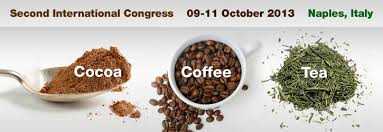Walker J.M.1, Mennella I. 1, Somoza V.2, Fogliano V. 1, Vitaglione P. 1 1 Department of Agriculture and Food Science, University of Naples “Federico II”, Naples, Italy. 2 Department of Nutritional and Physiological Chemistry, University of Vienna, Vienna, Austria. E-mail: joelmichael.walker@unina.it
The spread of the Western diet, rich in energy-dense foods, is one possible cause of the worldwide increase of overweight and obesity and a rise in people with diabetes mellitus and cardiovascular disease.
Grilling, roasting, and frying of foods leads to the formation of Maillard reaction products including non-digestible melanoidins that are primarily found in coffee and bread crust.
Melanoidins are structurally similar to vegetable dietary fiber, both are non-digestible dietary components partially fermented in the gut.
It is known that dietary fiber is able to trigger short-term satiety through the modulation of gut hormones controlling food intake, as has been shown with barley beta-glucans1,2.
It is known that dietary fiber and barley beta-glucans1 are able to trigger short-term satiety through the modulation of gut hormones controlling food intake.
Using melanoidins isolated from coffee and bread crust, novel breads were developed enriched with a 3% (g/g) amount of coffee melanoidins, bread melanoidins to compare to a barley beta-glucans bread and control bread (no extra melanoidins).
The four breads were served to fasted humans at breakfast at four different sessions and the short-term satiety was monitored by the amount of energy consumed at an ad libitum lunch, 3 h after breakfast, and for the rest of the 24 h period using a food diary.
In addition, satiety was measured using satiety questionnaires while blood samples were used to measure the short-term changes in gut hormones, stress hormones, and endocannabinoid concentrations using a Bio-Plex bead system and mass spectrometry.
Preliminary results from the study will be presented.
References [1] Vitaglione, P. et al. beta-Glucan-enriched bread reduces energy intake and modifies plasma ghrelin and peptide YY concentrations in the short term. Appetite. 2009, 53, 338-344.
[2] Barone Lumaga, R. et al. Sugar and dietary fibre composition influence, by different hormonal response, the satiating capactiy of a fruit-based and a β-glucan-enriched beverage. Food Funct. 2012, 3, 67-75.


















